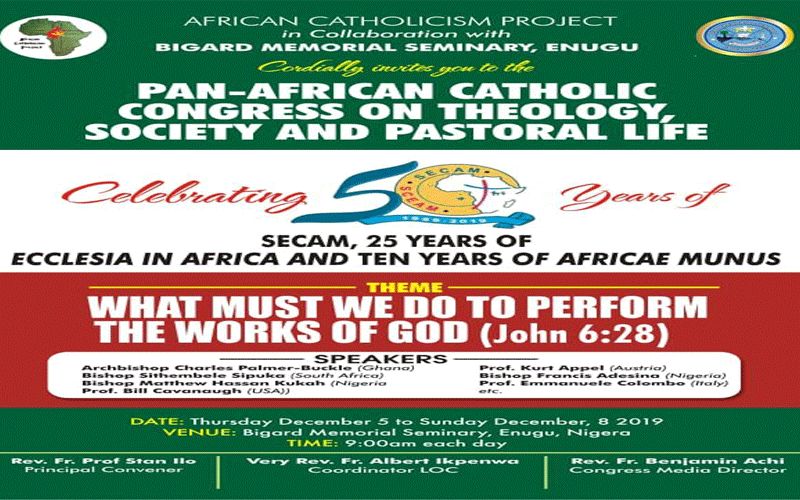Enugu, 04 December, 2019 / 12:50 am (ACI Africa).
Ten years after the Second Special Assembly for Africa of the Synod of Bishops on the theme “The Church in Africa at the Service of Reconciliation, Justice and Peace” during which Church leaders on the continent deliberated on, among other themes, transforming “theology into pastoral care,” a four-day Pan-African Catholic Congress on Theology, Society and Pastoral Life is set to take place in Enugu, Nigeria, under the theme, “What must we do to perform the works of God.”
“The overall goal of this important assembly is to reflect on the faith and fate of our people, evaluate different pastoral and theological approaches and jointly develop some best pastoral practices for the renewal and reform of the Catholic Church in Africa,” the organizers of the December 5-8, 2019 convention have stated in an online post.
The Congress will bring “together 80 prominent African clerics, laity, religious and scholars to develop best practices and new approaches for doing theology and pastoral ministries in the changing faces of faith and life in Africa,” the organizers have disclosed.
Among the conveners of the Congress set to employ the African Palaver method are the African Catholicism Project at the Centre for World Catholicism and Intercultural Theology (CWCIT), Chicago-based DePaul University, the Association of African Theologians in collaboration with the Symposium of Episcopal Conferences of Africa and Madagascar (SECAM), Bigard Memorial Seminary, Enugu and various Catholic Seminaries and Universities across Africa.
Besides providing a forum for strengthening and expanding the CWCIT network of African scholars, the convention will contribute content toward the publication of three books, which “will serve as a guide for theological education, pastoral life, formation of pastoral agents, and training of the laity in social justice, faith formation, and active participation in political and civic life in African countries at all levels.”








